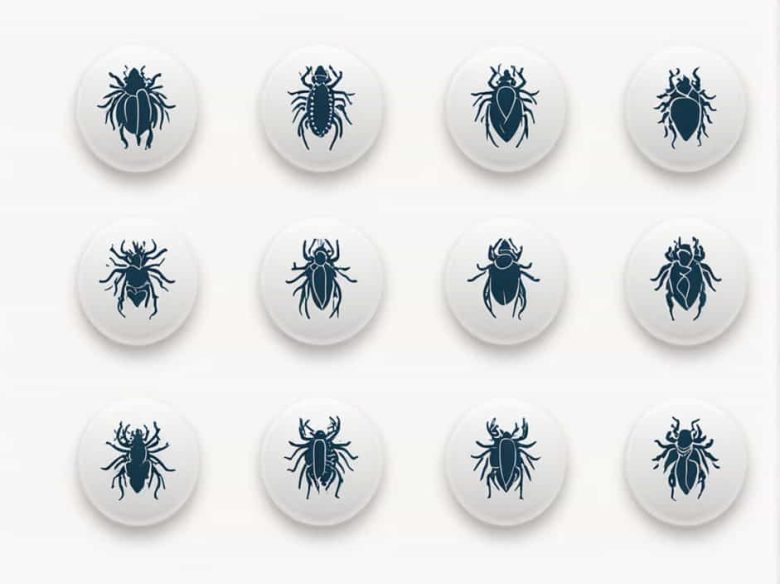Trematodes commonly known as flukes are parasitic flatworms that infect humans and animals causing various diseases. These parasites belong to the class Trematoda and typically have complex life cycles involving intermediate and definitive hosts.
In this topic we will discuss some of the most important trematode parasites that affect humans their life cycles symptoms and preventive measures.
What Are Trematodes?
✔ Trematodes are flat leaf-shaped parasitic worms that belong to the phylum Platyhelminthes.
✔ They have suckers to attach to host tissues.
✔ They infect various organs including the liver lungs intestines and blood.
✔ Most trematodes require snails as intermediate hosts before reaching humans.
Major Trematode Parasites That Infect Humans
1. Schistosoma spp. (Blood Flukes)
Schistosomiasis is one of the most widespread trematode infections in humans. It is caused by Schistosoma species including:
✔ Schistosoma mansoni (intestinal schistosomiasis)
✔ Schistosoma haematobium (urinary schistosomiasis)
✔ Schistosoma japonicum (Asian schistosomiasis)
Life Cycle
✔ The parasite’s eggs hatch in water releasing miracidia which infect snails.
✔ The snails release cercariae which penetrate human skin.
✔ The larvae develop into adult flukes in human blood vessels.
Symptoms
✔ Fever fatigue and abdominal pain
✔ Blood in urine (S. haematobium)
✔ Liver and intestinal damage (S. mansoni S. japonicum)
Prevention
✔ Avoid swimming in contaminated water.
✔ Improve sanitation and snail control.
✔ Use antiparasitic drugs like praziquantel for treatment.
2. Clonorchis sinensis (Chinese Liver Fluke)
Clonorchis sinensis infects the bile ducts of the liver causing clonorchiasis. It is common in East Asia.
Life Cycle
✔ Eggs released in feces hatch in water.
✔ Snails ingest the larvae which develop into cercariae.
✔ Fish eat infected snails and humans become infected by eating raw or undercooked fish.
Symptoms
✔ Abdominal pain and nausea
✔ Liver damage and bile duct inflammation
✔ Increased risk of cholangiocarcinoma (bile duct cancer)
Prevention
✔ Avoid eating raw or undercooked freshwater fish.
✔ Proper sewage disposal to prevent water contamination.
✔ Use praziquantel for treatment.
3. Fasciola hepatica (Sheep Liver Fluke)
Fasciola hepatica causes fascioliasis primarily infecting the liver and bile ducts.
Life Cycle
✔ Eggs hatch in water releasing miracidia which infect snails.
✔ Snails release cercariae which attach to aquatic plants.
✔ Humans ingest larvae by eating contaminated water plants (e.g. watercress).
Symptoms
✔ Fever nausea and abdominal pain
✔ Liver enlargement and bile duct obstruction
✔ Chronic infections cause gallbladder disease
Prevention
✔ Avoid eating raw aquatic plants.
✔ Proper cooking and washing of vegetables.
✔ Use triclabendazole for treatment.
4. Paragonimus westermani (Lung Fluke)
Paragonimus westermani causes paragonimiasis affecting the lungs. It is found in Asia Africa and South America.
Life Cycle
✔ Eggs hatch in water and miracidia infect snails.
✔ Cercariae penetrate crabs and crayfish where they develop into metacercariae.
✔ Humans become infected by eating undercooked crabs or crayfish.
Symptoms
✔ Persistent cough and chest pain
✔ Coughing up bloody sputum
✔ Can be misdiagnosed as tuberculosis
Prevention
✔ Cook crabs and crayfish thoroughly.
✔ Avoid consuming raw or undercooked shellfish.
✔ Use praziquantel or bithionol for treatment.
5. Fasciolopsis buski (Intestinal Fluke)
Fasciolopsis buski is the largest intestinal fluke causing fasciolopsiasis. It is common in Southeast Asia and India.
Life Cycle
✔ Eggs hatch in water and miracidia infect snails.
✔ Cercariae attach to aquatic plants like water chestnuts.
✔ Humans ingest the metacercariae from contaminated plants or water.
Symptoms
✔ Diarrhea vomiting and abdominal pain
✔ Nutrient malabsorption and weight loss
✔ Severe infections may cause intestinal obstruction
Prevention
✔ Wash and cook aquatic plants before eating.
✔ Improve sanitation and snail control.
✔ Use praziquantel for treatment.
How to Prevent Trematode Infections?
✔ Avoid Raw or Undercooked Seafood – Many flukes are transmitted through fish crabs or shellfish.
✔ Drink Clean Water – Boiling water kills trematode larvae.
✔ Wash Vegetables Properly – Aquatic plants may carry parasites.
✔ Improve Sanitation – Proper waste disposal prevents contamination.
✔ Avoid Contact with Contaminated Water – Standing or swimming in infected water increases risk.
✔ Take Antiparasitic Medications – If diagnosed use prescribed treatments like praziquantel or triclabendazole.
Trematodes are dangerous parasites that infect millions of people worldwide causing serious diseases. Blood flukes liver flukes lung flukes and intestinal flukes all have complex life cycles that involve snails as intermediate hosts.
Understanding how these parasites spread and how to prevent infections is crucial for maintaining public health. By following proper hygiene practices cooking food thoroughly and avoiding contaminated water sources the risk of trematode infections can be significantly reduced.



